International HRM at Unilever PLC: Key Differences & Strategies
VerifiedAdded on 2023/06/13
|8
|417
|162
Presentation
AI Summary
This presentation provides a critical overview of International Human Resource Management (IHRM) within Unilever PLC, a multinational corporation headquartered in London. It examines the key factors that differentiate domestic HRM from international HRM, focusing on the impact of culture, policies, and laws. The presentation references Hofstede's Cultural Dimensions Theory to illustrate cultural differences and discusses how varying national laws and regulations affect HRM practices within Unilever. It also touches upon specific policies such as employment, sexual harassment, and discrimination, noting their variations across different countries. The presentation concludes with a list of references supporting the analysis.
1 out of 8
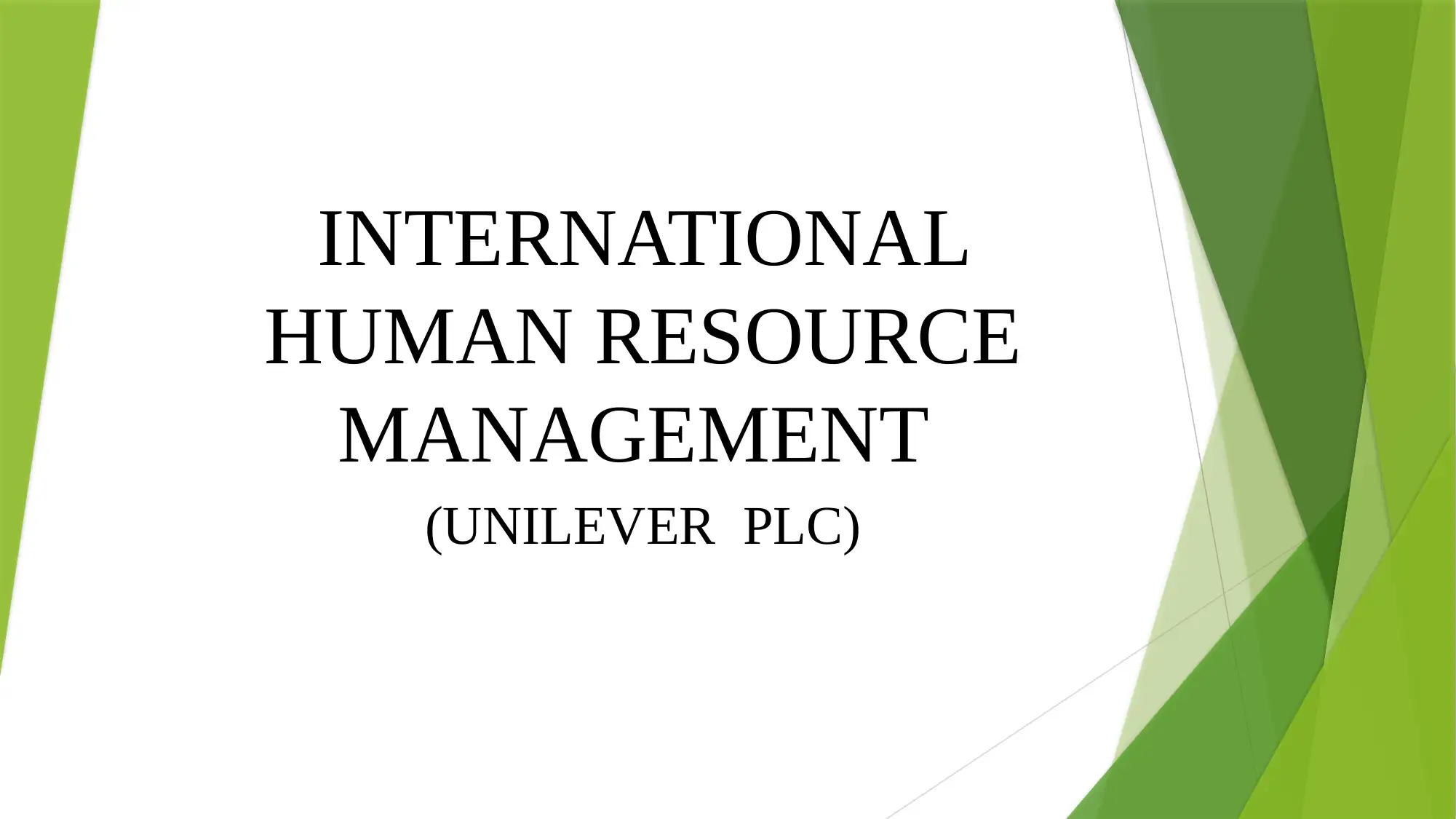
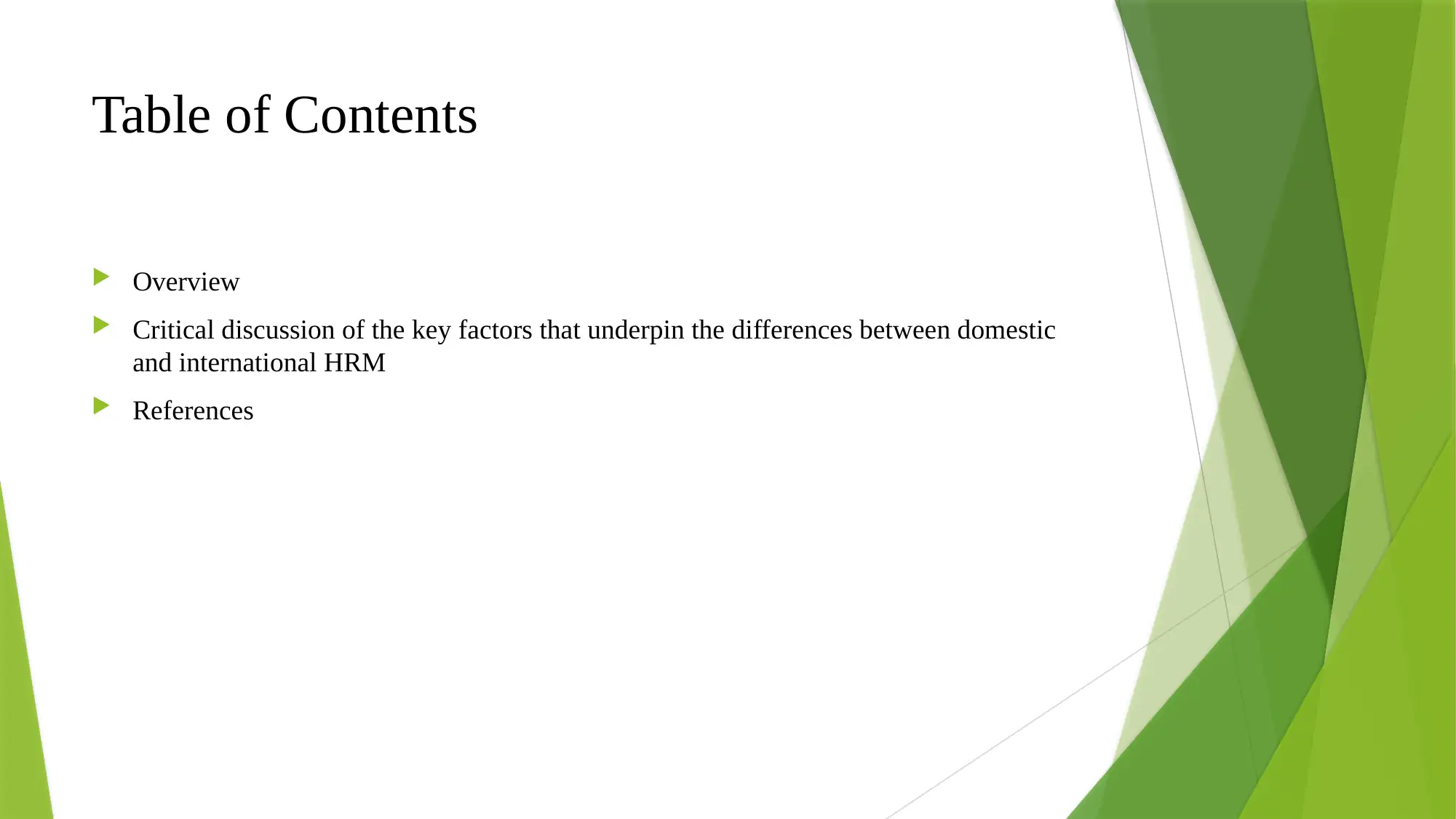
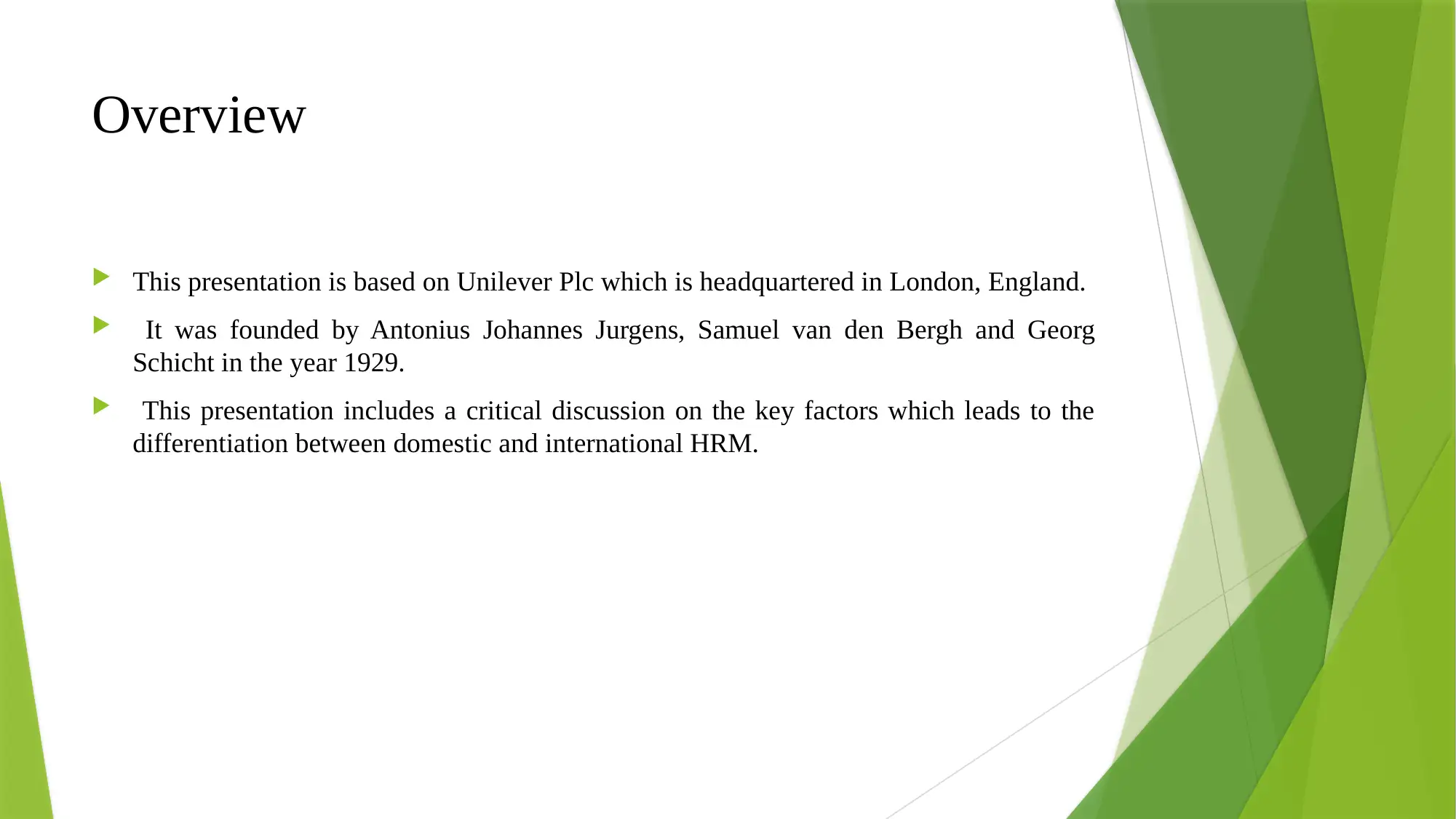

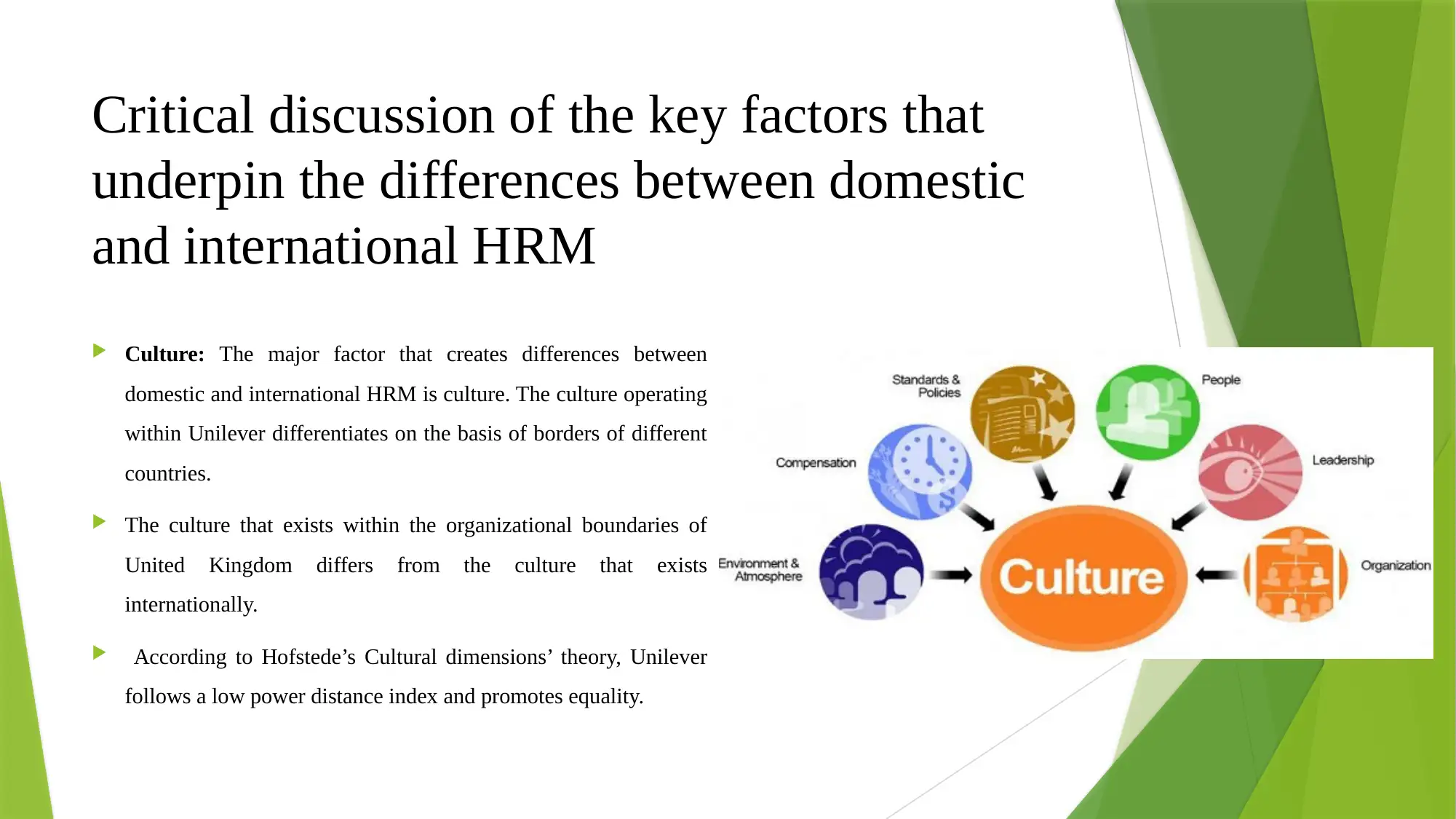
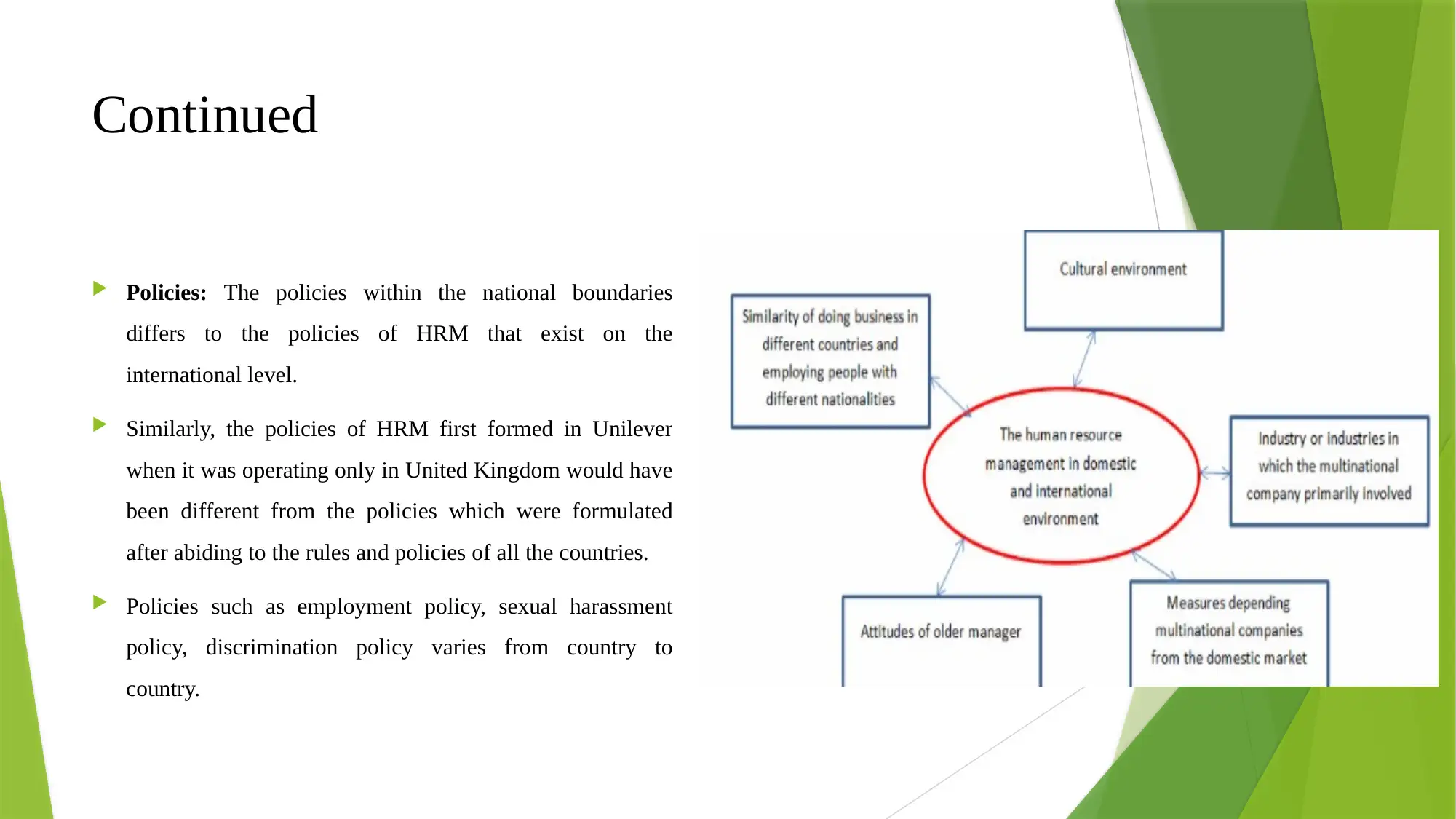
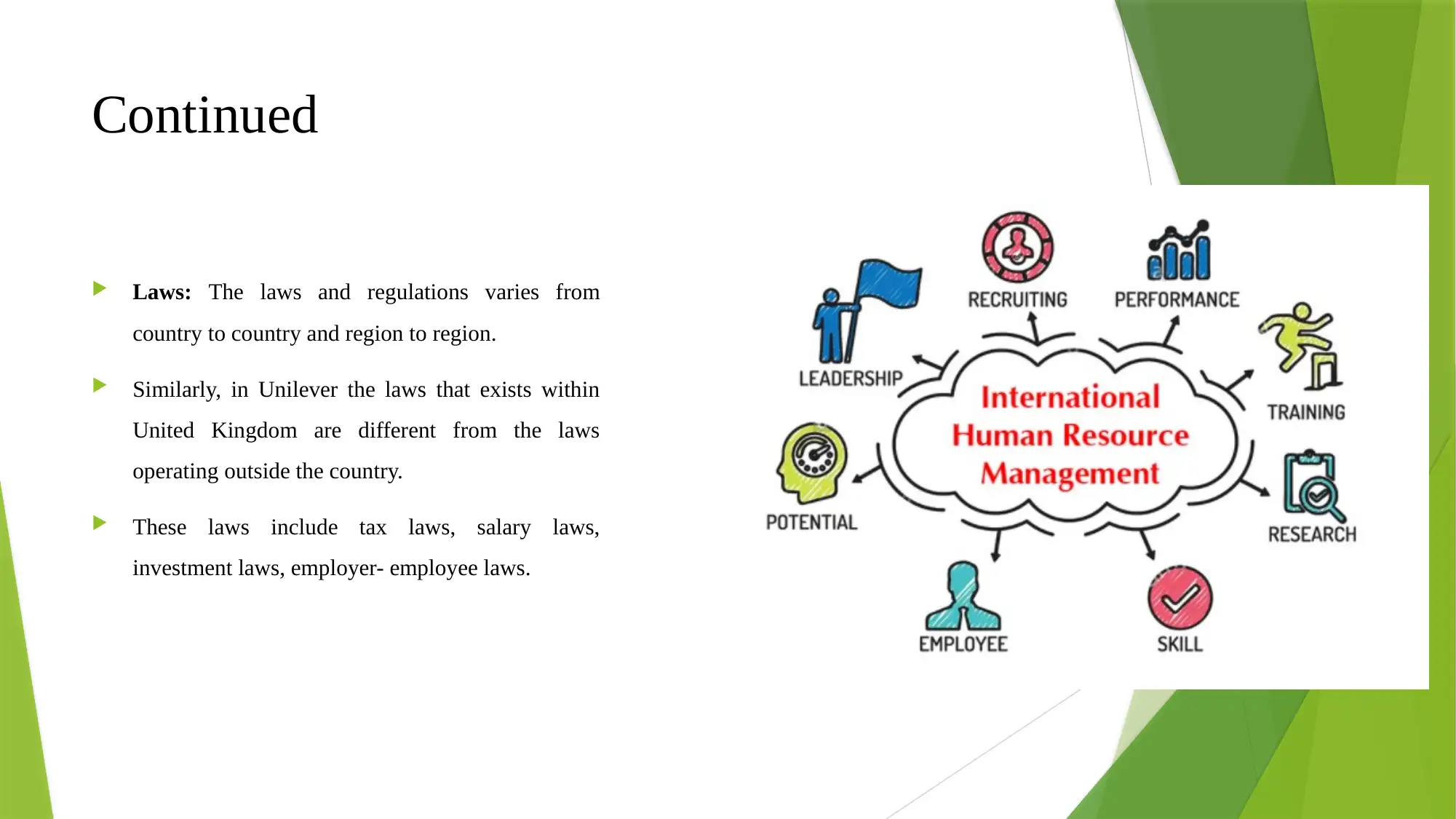
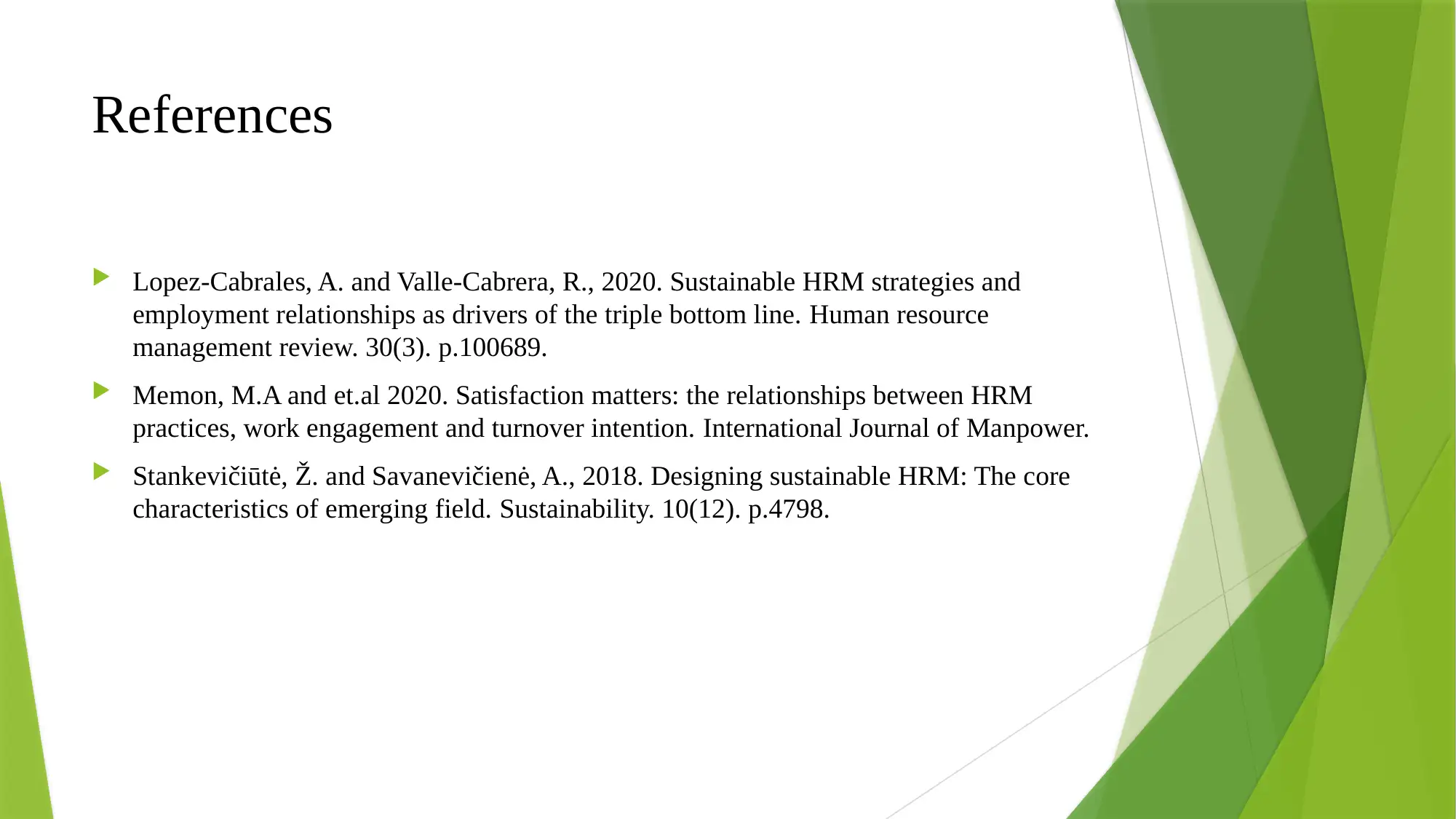





![[object Object]](/_next/static/media/star-bottom.7253800d.svg)